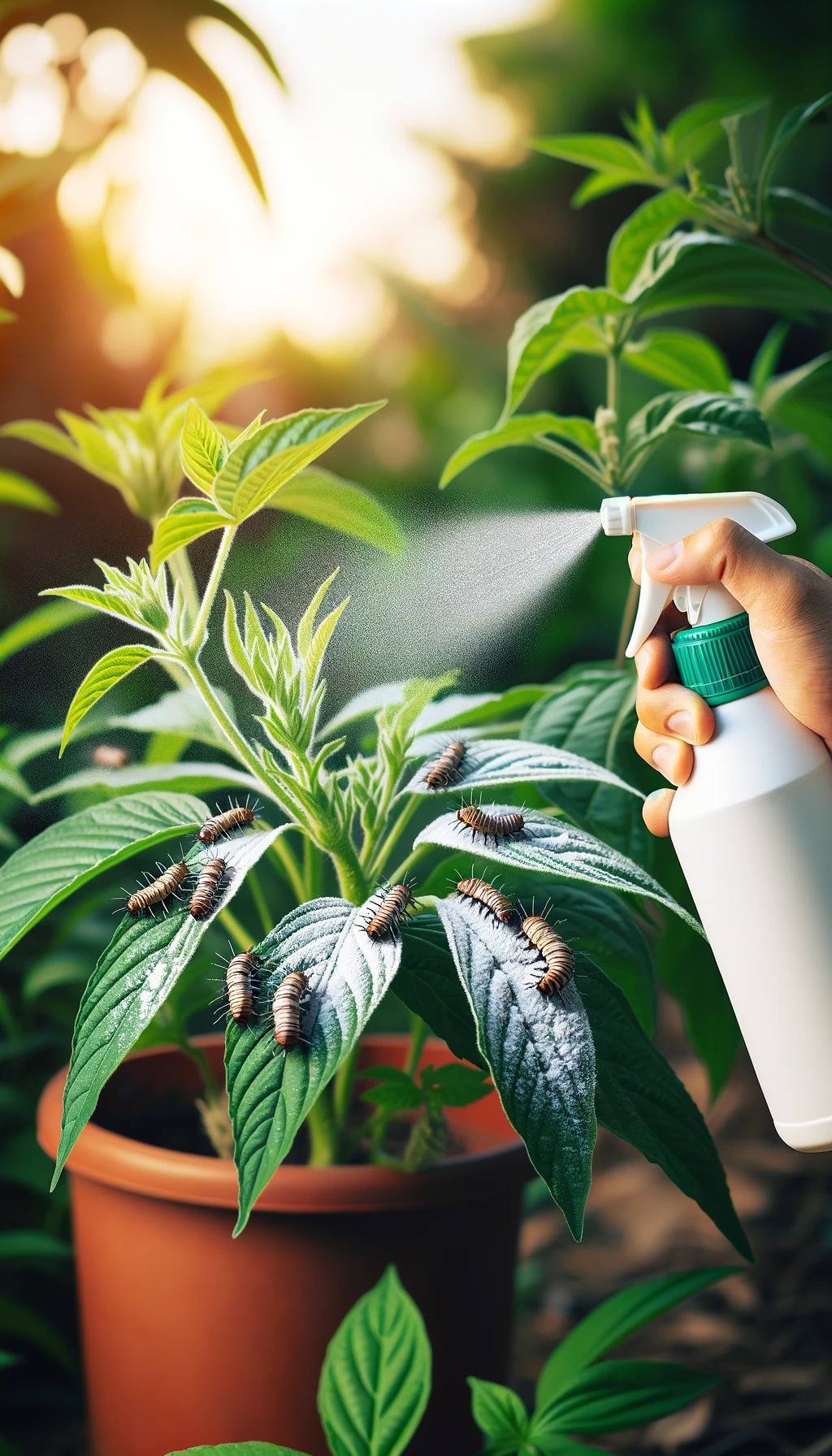ADVERTISEMENT
How to Protect Plants from Insects: The Natural Method
Insects can be a gardener’s worst nightmare. From aphids to caterpillars, these tiny pests can wreak havoc on your plants, causing them to wither, wilt, or even die. While chemical pesticides may seem like an easy fix, they can harm the environment, beneficial insects, and even your health. Fortunately, there are plenty of natural methods to protect your plants from insect infestations. By using eco-friendly strategies, you can safeguard your garden without resorting to harmful chemicals.
Here’s how to protect your plants from insects using natural, sustainable methods:
1. Encourage Beneficial Insects
The best defense against harmful insects is a strong offense—by attracting beneficial insects, you can help maintain a healthy ecosystem in your garden. Certain insects, such as ladybugs, lacewings, and predatory beetles, are natural predators of pests like aphids and mites.
How to Do It:
- Plant Nectar-Rich Flowers: Include flowers like lavender, daisies, and sunflowers in your garden. These attract beneficial insects while adding beauty to your garden.
- Provide Habitats: Create a habitat for helpful insects by leaving areas of your garden a little wilder. A few piles of leaves, small rocks, or an insect hotel can encourage predators to settle in and help keep pests in check.
2. Use Diatomaceous Earth
Diatomaceous earth (DE) is a fine powder made from the fossilized remains of tiny aquatic organisms. It works by physically damaging the exoskeletons of insects, causing them to dehydrate and die. It’s non-toxic to humans and pets but deadly to many pests like ants, slugs, and aphids.
How to Do It:
- Sprinkle it Around Plants: Lightly dust the base of your plants, especially around stems and leaves where pests tend to hide. Be careful to apply it on dry days when there’s no rain forecast, as moisture can reduce its effectiveness.
- Reapply After Rain: DE needs to be dry to work properly, so if it rains, you may need to reapply it.
3. Neem Oil Spray
Neem oil is a natural insecticide that is derived from the seeds of the neem tree. It’s safe for most plants, humans, and pets, and can deter a variety of pests, including aphids, whiteflies, and spider mites. Neem oil works by disrupting the insects’ hormonal systems, preventing them from feeding, mating, or laying eggs.
How to Do It:
- Make a Spray Solution: Mix 2 tablespoons of neem oil with a gallon of water and a few drops of dish soap to help it emulsify.
- Apply to Affected Plants: Spray the solution on both the tops and bottoms of leaves, as well as the stems. Apply early in the morning or late in the evening to avoid burning your plants during the heat of the day.
- Repeat as Necessary: Apply the spray every 7-14 days, or more often if you notice a resurgence of pests.
4. Create Garlic and Chili Pepper Spray
Garlic and chili peppers are both natural insect repellents that can help protect plants from pests. The strong smells of garlic and capsaicin (the compound that makes chili peppers spicy) act as a deterrent for insects, keeping them from feeding on your plants.
How to Do It:
- Blend the Ingredients: Blend 3 cloves of garlic, 1-2 hot chili peppers, and a tablespoon of vegetable oil in a blender. Add a cup of water and strain the mixture through a fine sieve to remove the solids.
- Add Soap and Water: Mix the strained liquid with 1 tablespoon of dish soap and 1 quart of water. The soap helps the spray stick to your plants.
- Spray on Plants: Apply the spray generously to the affected areas of your plants. As with neem oil, it’s best to apply it early in the morning or late in the evening.
5. Introduce Companion Plants
Companion planting is a natural way to repel insects and encourage plant growth. Certain plants emit smells or chemicals that pests dislike, while others attract beneficial insects.
How to Do It:
- Use Strong-Smelling Herbs: Plants like basil, mint, rosemary, and thyme have strong scents that deter pests such as mosquitoes, aphids, and whiteflies. Plant these herbs near susceptible plants.
- Plant Marigolds and Nasturtiums: Marigolds release a scent that repels aphids, nematodes, and other pests, while nasturtiums act as a trap crop for aphids, luring them away from your more delicate plants.
6. Make a Soap and Water Solution
Insects like aphids, spider mites, and whiteflies can often be removed from plants using a simple soap and water solution. This method works by suffocating the insects, without harming your plants.
For Complete Cooking STEPS Please Head On Over To Next Page Or Open button (>) and don’t forget to SHARE with your Facebook friends
